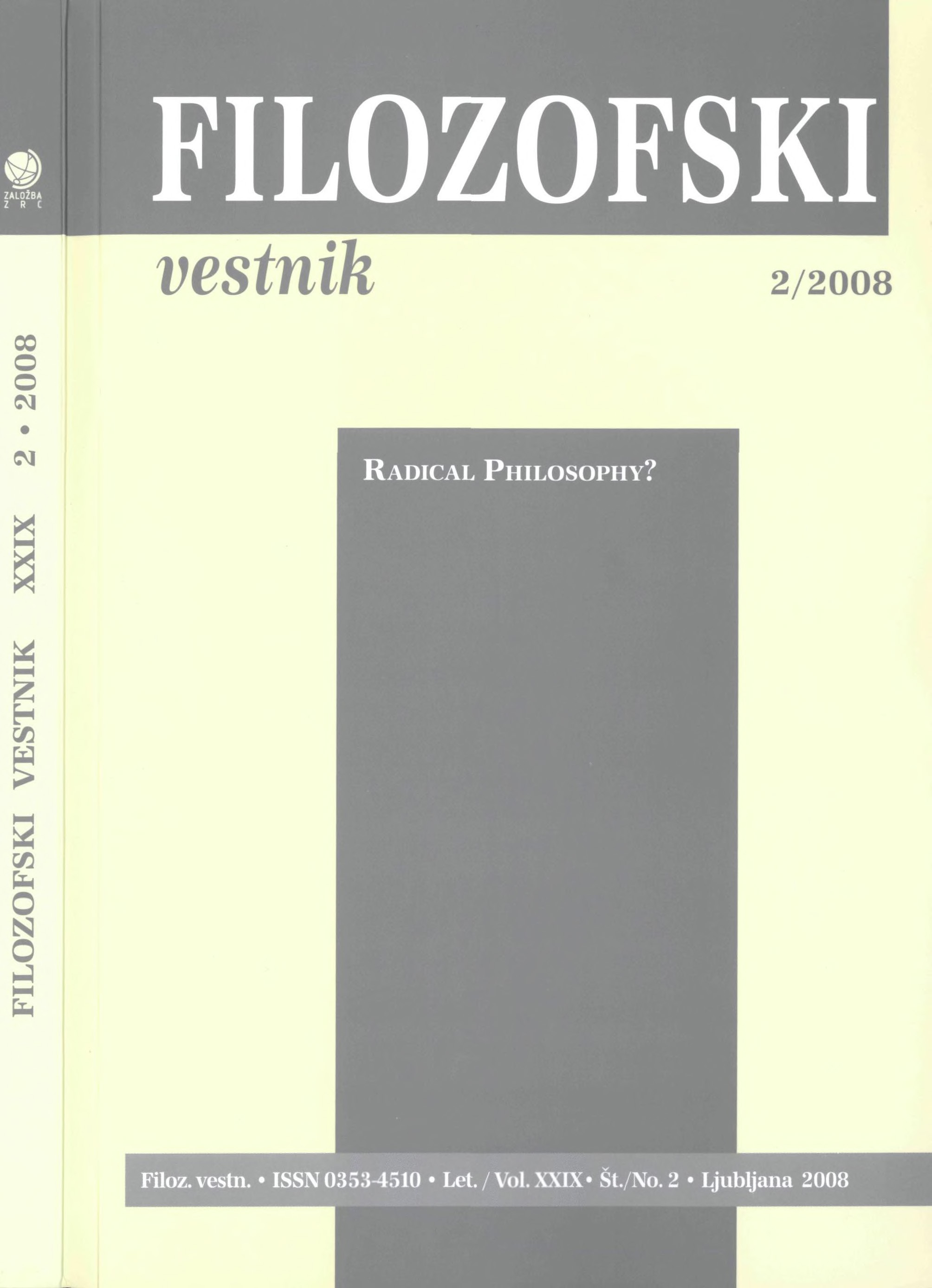Ad Hominem: The Antinomies of Radical Philosophy
Povzetek
The decisive inquiry into the volatile link between philosophy, revolution, and the 'radical' is arguably Marx's 'A Contribution to the Critique of Hegel's Philosophy of Right: An Introduction', written in 1843. We can still find all these themes introduced by Marx at work 80 years later in an emblematic and instructive confrontation between Georg Lukács and Ernst Bloch. Where Lukács presents the proletariat as the practical and epistemological 'Archimedean point' capable of unhinging the capitalist totality, Bloch reveals in a subjective metahistory of a utopian kernel whose drive and directionality – despite all of the changes in instruments, organisations, and motivating ideologies – remains invariant from the Taborites to the Bolsheviks. To borrow Lukács's formulation, we are thus confronted with two potent, and alternative ways, to politically and conceptually grasp the statement that man 'both is and at the same time is not', or, in Blochian terms, both is and is not-yet. This antinomy signified by the names and texts of Lukács and Bloch is visible in the insistence of contemporary radical thought on the enigmas of philosophical anthropology, the political repercussions of messianism, and the possibility of a rational and partisan subjectivity.Prenosi
Podatki o prenosih še niso na voljo.
Prenosi
Objavljeno
2008-01-01
Kako citirati
Toscano, A. (2008). Ad Hominem: The Antinomies of Radical Philosophy. Filozofski Vestnik, 29(2). Pridobljeno od https://ojs.zrc-sazu.si/filozofski-vestnik/article/view/3193
Številka
Rubrike
From the Antinomies of Radical Philosophy to Radical Antiphilosophy
Licenca
Avtorji jamčijo, da je delo njihova avtorska stvaritev, da v njem niso kršene avtorske pravice tretjih oseb ali kake druge pravice. V primeru zahtevkov tretjih oseb se avtorji zavezujejo, da bodo varovali interese založnika ter da bodo povrnili morebitno škodo.
Podrobneje v rubriki: Prispevki





